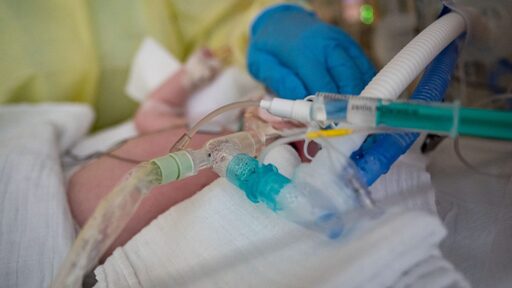Far fewer babies went to the hospital struggling to breathe from RSV, a severe respiratory infection, after the debut of a new vaccine and treatment this season, according to an analysis published today by the Centers for Disease Control and Prevention.
RSV, or respiratory syncytial (sin-SISH-uhl) virus, is the leading cause of hospitalization for infants in the US. An estimated 58,000–80,000 children younger than 5 years old are hospitalized each year. Newborns—babies between 0 and 2 months—are the most at risk of being hospitalized with RSV. The virus circulates seasonally, typically rising in the fall and peaking in the winter, like many other respiratory infections.
But the 2024–2025 season was different—there were two new ways to protect against the infection. One is a maternal vaccine, Pfizer’s Abrysvo, which is given to pregnant people when their third trimester aligns with RSV season (generally September through January). Maternal antibodies generated from the vaccination pass to the fetus in the uterus and can protect a newborn in the first few months of life. The other new protection against RSV is a long-acting monoclonal antibody treatment, nirsevimab, which is given to babies under 8 months old as they enter or are born into their first RSV season and may not be protected by maternal antibodies.



You’re partially right and I was misremembering. There is an RSV vaccine but it’s typically only given to older adults and people who have had severe RSV, which my dad recently did and we were discussing that he would need the vaccine.
We just recently got every vaccine under the sun and my brain jumbled those things around. I got pneumonia, flu, Covid, TDAP, and Hep B. I always forget that last one because most of my life that was only for IV drug users and it’s weird to me that it’s for everyone now. So I counted and thought RSV. Thanks for setting that straight.